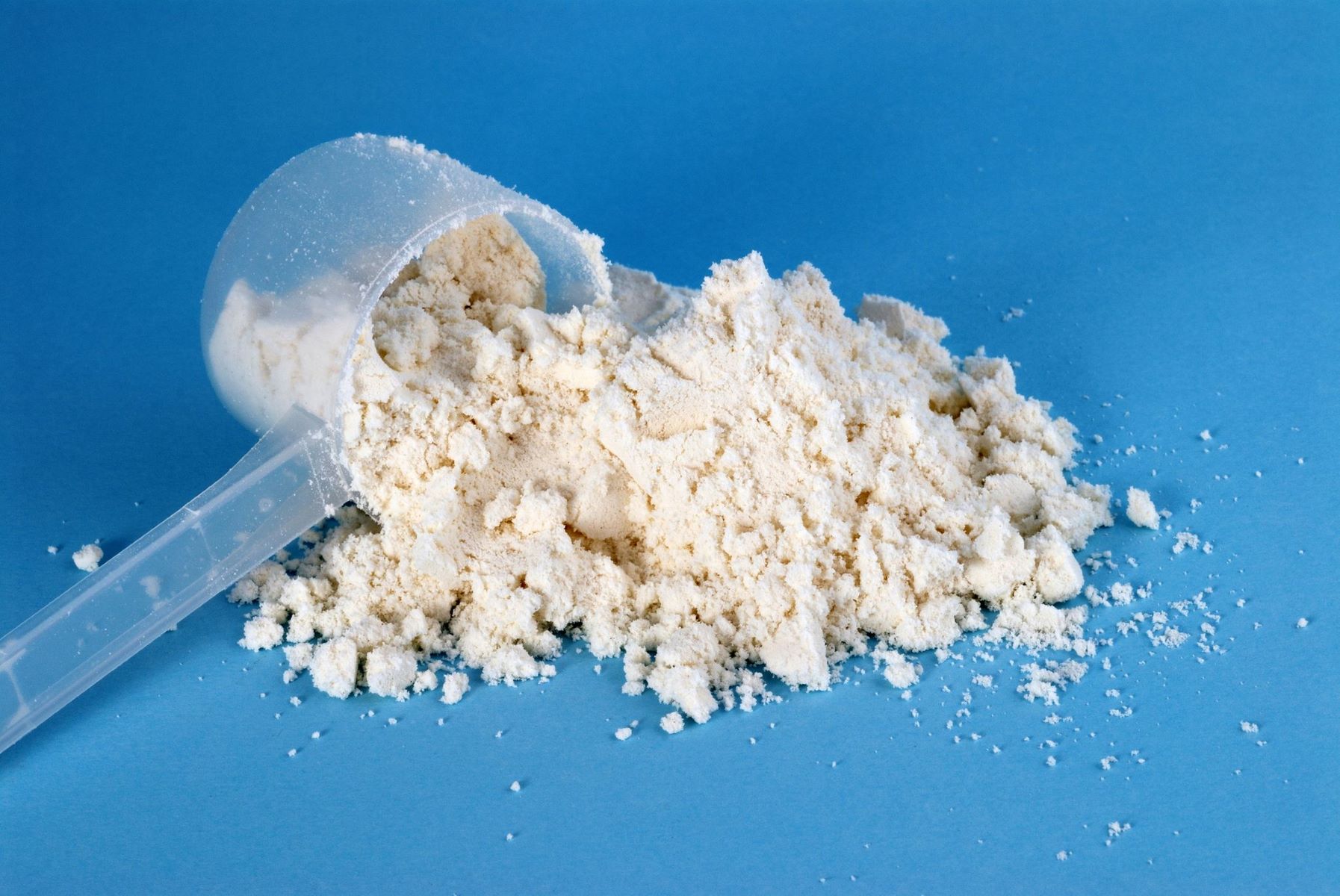Home>Misc>Featured>Which Diet Composition Has Been Shown To Increase Maximum Endurance Time The Greatest?


Featured
Which Diet Composition Has Been Shown To Increase Maximum Endurance Time The Greatest?
Modified: January 2, 2024
Discover the featured diet composition that has been proven to enhance maximum endurance time to its greatest extent. Explore the optimal methods to improve your athletic performance today!
Introduction
Improving endurance is a key goal for athletes and individuals engaging in various sports and physical activities. Endurance training programs often incorporate dietary modifications to optimize performance and enhance stamina. However, determining the ideal diet composition for maximizing endurance time has been a subject of ongoing research and debate. Various studies have explored the impact of different macronutrient ratios on endurance performance, with conflicting findings.
The purpose of this article is to examine the research conducted thus far to identify the diet composition that has been shown to increase maximum endurance time to the greatest extent. By analyzing the methodology, study participants, diet compositions, endurance training protocols, and results from relevant studies, we can gain insights into the most effective dietary strategies for enhancing endurance performance.
Understanding the role of diet in endurance training is crucial for athletes looking to optimize their performance and achieve their goals. By identifying the diet composition that yields the greatest increase in endurance time, athletes can tailor their nutritional intake to gain a competitive edge.
On the other hand, individuals who engage in regular physical activities can also benefit from this information by adopting dietary practices that support improved endurance and overall fitness levels.
While there is no one-size-fits-all approach to optimizing endurance performance through diet, the research conducted in this area can provide valuable guidance and insights for athletes and individuals alike.
Methodology
To determine the diet composition that has been shown to increase maximum endurance time to the greatest extent, multiple studies have been conducted using different methodologies. The following section provides an overview of the common approaches used in these studies.
Most studies exploring the effect of diet composition on endurance performance have employed randomized controlled trials. These trials involve dividing participants into different groups and assigning each group a specific diet composition to follow. This approach helps to eliminate confounding variables and allows for a more accurate comparison of the different diet compositions.
The studies generally recruit a sample of healthy, physically active individuals who have a similar baseline level of fitness. This ensures that any observed differences in endurance performance can be attributed to the specific diet composition rather than individual variation in fitness levels.
The duration of the studies varies, but they typically range from several weeks to a few months. This allows for sufficient time to observe changes in endurance performance and potential adaptations to the different diet compositions.
During the study period, participants are required to adhere to their assigned diet composition. Researchers closely monitor compliance to ensure that participants are following the prescribed dietary guidelines and to accurately evaluate the impact of the specific diet on endurance performance.
Endurance training programs are often incorporated alongside the dietary interventions. These training programs typically involve a range of aerobic exercises, such as running, cycling, or swimming, designed to improve cardiovascular fitness and endurance capacity.
To assess endurance performance, various indicators are measured, including maximum endurance time, time to exhaustion, and aerobic capacity. These measurements are taken before and after the intervention period to evaluate the impact of the different diet compositions on participants’ endurance capacity.
Statistical analyses are employed to compare the results obtained from the different groups. This allows researchers to determine if there are significant differences in endurance performance between the various diet compositions being studied.
It is important to note that while randomized controlled trials are considered the gold standard for scientific research, they have some limitations. Individual variation in responses to diet and exercise, as well as potential bias and sample size restrictions, are factors that researchers need to consider and address when interpreting the results.
Despite these limitations, the methodology employed in these studies provides valuable insights into the impact of different diet compositions on endurance performance and helps to guide athletes and individuals on the most effective dietary strategies to improve their endurance capacity.
Study Participants
The selection of appropriate study participants is critical in determining the impact of diet composition on endurance performance. The following section outlines the characteristics of the participants typically included in these studies.
Participants in studies examining the effect of diet composition on endurance performance are often healthy, recreationally active individuals. They are typically screened to ensure they do not have any underlying medical conditions or injuries that could impact their ability to engage in physical activity.
The participants are often matched based on certain criteria such as age, sex, and baseline fitness levels. This matching process helps to ensure that any differences observed in endurance performance can be attributed to the specific diet composition being investigated.
Study participants are typically required to have a basic level of fitness before enrolling in the study. This is to ensure that they are able to engage in the prescribed endurance training program without any significant limitations.
Age is an important factor considered when selecting study participants, as different age groups may respond differently to dietary interventions. By including participants from a range of age groups, researchers can better understand the impact of diet composition on endurance performance across different populations.
Sex is another factor that researchers often consider when recruiting participants. Studies may include both male and female participants to assess any potential gender-based differences in the response to different diet compositions.
It is worth noting that while recreational athletes are commonly included in these studies, some research may specifically focus on elite endurance athletes. This allows for a more targeted examination of the impact of diet composition on individuals who have already reached a high level of fitness and performance.
The sample size of these studies can vary, with some including a relatively small number of participants and others involving larger cohorts. It is important for studies to have an adequate sample size in order to provide statistically significant results that can be generalized to the wider population.
Overall, the inclusion of diverse study participants helps to ensure that findings related to the impact of diet composition on endurance performance are applicable to a range of individuals, from recreational athletes to elite performers.
Diet Composition
The diet composition studied in relation to endurance performance typically focuses on the distribution of macronutrients, namely carbohydrates, fats, and proteins. Different studies have explored various ratios and amounts of these macronutrients to determine the most effective diet composition for improving endurance capacity.
Carbohydrates play a crucial role in fueling endurance activities as they are the primary energy source during aerobic exercise. Research has consistently shown that a high-carbohydrate diet can enhance endurance performance. This diet typically consists of a higher percentage of carbohydrates, such as complex carbohydrates (whole grains, fruits, vegetables) and simple carbohydrates (sugars), to provide a readily available source of energy to the muscles.
Fats are an important energy source for longer duration endurance activities. While the role of fat in endurance performance is still debated, some studies have explored the impact of high-fat diets, such as a ketogenic diet, which drastically restricts carbohydrate intake and increases fat consumption. These studies aim to determine if the body can efficiently utilize fat as a fuel source during endurance exercise.
Proteins, although primarily associated with muscle repair and recovery, may also play a role in endurance performance. Some studies have investigated whether a higher protein intake can improve endurance capacity by promoting muscle protein synthesis and enhancing muscle endurance.
In addition to the macronutrient composition, researchers have also examined the timing of nutritional intake, such as pre-exercise and post-exercise meals or snacks, to optimize performance. Understanding the timing of nutrient consumption can help ensure that the body has enough energy to sustain endurance activities and promote recovery.
It is essential to note that individual responses to different diet compositions can vary. Some individuals may perform better with a higher carbohydrate intake, while others may thrive on a higher fat or protein intake. It is important to consider individual preferences, tolerances, and goals when determining the most suitable diet composition for improving endurance performance.
Furthermore, it is crucial to emphasize that proper hydration is paramount in supporting optimal endurance performance. Hydration status, including fluid intake and electrolyte balance, needs to be considered alongside diet composition to maximize endurance capacity.
Overall, by exploring the impact of different ratios and amounts of carbohydrates, fats, and proteins, researchers aim to identify the optimal diet composition that can enhance endurance performance and help individuals reach their peak athletic potential.
Endurance Training
Endurance training, in conjunction with the appropriate diet composition, plays a crucial role in improving endurance performance. The following section explores the key aspects of endurance training that are often incorporated into studies examining the impact of diet on endurance capacity.
Aerobic exercises, such as running, cycling, swimming, and rowing, are commonly used in endurance training programs. These activities focus on sustained effort over an extended period of time, allowing individuals to build cardiovascular fitness and improve their endurance capacity.
Endurance training programs often include a combination of different training modalities, such as long, slow-distance runs, high-intensity interval training (HIIT), and tempo runs. This variety helps to target different energy systems and improve overall endurance capacity.
The frequency and duration of endurance training sessions can vary depending on an individual’s goals and fitness level. Some studies have utilized training protocols that incorporate several sessions per week, while others have employed more intense and frequent training regimens.
In addition to the specific exercises performed, the intensity of endurance training is an important factor. Studies have explored the impact of both low-intensity, steady-state training and high-intensity interval training on endurance performance. This allows researchers to investigate the optimal balance between volume and intensity in achieving maximum endurance capacity.
Progressive overload is a key principle applied in endurance training. This involves gradually increasing the intensity, duration, or frequency of training sessions over time to promote adaptations and improvements in endurance capacity. By progressively challenging the body, individuals can continually enhance their endurance performance.
Recovery is an essential aspect of endurance training. Adequate rest and recovery periods between training sessions allow for adaptations to occur and reduce the risk of overtraining or injury. This includes sleep, nutrition, and active recovery techniques to support the body’s recovery and optimize performance.
Moreover, cross-training and strength training exercises may be incorporated into endurance training programs. Cross-training involves engaging in different activities, such as swimming or cycling, to improve overall fitness and prevent overuse injuries. Strength training, on the other hand, focuses on building muscular strength and power, which can enhance endurance performance and reduce the risk of fatigue.
It is important to note that the specific endurance training protocol used in studies can vary, and the optimal training program may differ depending on individual goals, fitness levels, and sport-specific demands. Nevertheless, by integrating appropriate endurance training methods into the study design, researchers can better evaluate the impact of different diet compositions on endurance performance.
Results
The results from studies examining the impact of diet composition on endurance performance have provided valuable insights into the most effective dietary strategies for maximizing endurance capacity. The following section highlights some key findings from these studies.
Several studies have consistently shown that a high-carbohydrate diet can significantly improve endurance performance. The consumption of adequate amounts of carbohydrates before and during prolonged exercise has been found to enhance glycogen stores in the muscles, delay fatigue, and improve overall endurance capacity. These findings support the importance of incorporating carbohydrates as a primary fuel source during endurance activities.
Research exploring the effects of high-fat, low-carbohydrate diets, such as the ketogenic diet, on endurance performance has yielded mixed results. While some studies have reported improvements in fat metabolism and certain aspects of endurance performance, others have demonstrated decreased overall endurance capacity due to impaired carbohydrate utilization. This suggests that high-fat diets may not be as effective for enhancing endurance performance compared to high-carbohydrate diets.
Moreover, the impact of protein intake on endurance performance is still being investigated. While adequate protein consumption is essential for muscle repair and recovery, the direct effect on endurance capacity is less clear. Some studies have shown that higher protein intake may promote muscle protein synthesis and improve muscle endurance, leading to enhanced endurance performance. However, further research is needed to fully understand the optimal protein intake for maximizing endurance capacity.
In addition to the specific macronutrient compositions, studies have also explored the timing of nutritional intake. Consuming carbohydrates before and during exercise has been shown to enhance endurance performance by providing an immediate source of energy and maintaining blood glucose levels. Post-exercise protein consumption has also been found to aid in muscle recovery and adaptation, which can contribute to improved endurance performance.
It is important to note that the optimal diet composition for maximizing endurance capacity may vary among individuals. Factors such as training background, fitness level, and personal preference can influence the most effective dietary strategy. Furthermore, individual responses to different diet compositions may vary, highlighting the need for personalized approaches to nutrition and endurance training.
Overall, the results from various studies indicate that a high-carbohydrate diet, along with appropriate timing of nutritional intake, is consistently associated with improved endurance performance. While the impact of fat and protein intake on endurance capacity requires further investigation, these findings provide valuable insights for athletes and individuals seeking to enhance their endurance performance through dietary modifications.
Discussion
The findings from studies investigating the impact of diet composition on endurance performance have sparked important discussions in the field of sports nutrition. The following section delves into some key points of discussion surrounding the relationship between diet and endurance capacity.
One key aspect of the discussion is the individual variation in response to different diet compositions. While certain dietary strategies, such as a high-carbohydrate diet, have demonstrated consistent improvements in endurance performance for many individuals, it is crucial to acknowledge that individual responses may differ. Factors such as genetics, training background, and metabolic flexibility can influence the optimal diet composition for each individual.
Another area of discussion revolves around the potential trade-off between high-fat and high-carbohydrate diets. While some studies have explored the benefits of high-fat diets, particularly the ketogenic diet, on endurance performance, conflicting results have been observed. This discrepancy may stem from differences in study design, duration, and participant characteristics. Further research is necessary to fully elucidate the effects of high-fat diets on endurance capacity and to identify the individuals who may benefit the most from these dietary approaches.
The timing of nutrient intake is also a topic of discussion. While consuming carbohydrates before and during exercise has been shown to enhance endurance performance, there is ongoing debate about the optimal timing and dosage. Likewise, the timing and amount of post-exercise protein consumption require further investigation to determine their impact on muscle recovery and adaptation in the context of endurance training.
The impact of dietary factors beyond macronutrient composition has also garnered attention. For example, the role of micronutrients, such as iron, vitamin D, and antioxidants, in endurance performance is an area of ongoing research. Understanding the influence of these micronutrients on energy production, oxygen transport, and oxidative stress may provide additional insights into optimizing endurance capacity.
The use of individualized approaches to nutrition, taking into account an athlete’s specific needs and goals, is an emerging area of interest. By considering an individual’s unique characteristics, such as metabolic rate, training volume, and personal preferences, nutritionists and athletes can work together to develop tailored dietary strategies that maximize endurance performance.
It is also important to acknowledge that endurance performance is influenced by numerous factors beyond diet, including training volume, intensity, sleep, and overall lifestyle. While diet composition is a crucial component, it should be considered in conjunction with other factors to optimize endurance capacity.
Overall, the discussion surrounding the relationship between diet composition and endurance performance is dynamic and multifaceted. Continued research and collaboration between scientists, athletes, and nutrition professionals are needed to further unravel the complexities of this topic and translate findings into practical dietary guidelines for optimizing endurance capacity.
Conclusion
The impact of diet composition on maximizing endurance performance is a topic of great interest in the realm of sports nutrition. Through extensive research and study, valuable insights have been gained into the effects of different macronutrient ratios and timing of nutritional intake on endurance capacity.
Overall, the findings suggest that a high-carbohydrate diet, along with appropriate timing of carbohydrate consumption before and during exercise, has consistently demonstrated positive effects on endurance performance. Adequate intake of carbohydrates helps to maintain glycogen stores, delay fatigue, and provide a readily available source of energy for sustained aerobic activity.
Although the role of fats and proteins in enhancing endurance performance is still being investigated, it has been observed that high-fat diets may not be as effective as high-carbohydrate diets in improving overall endurance capacity. Protein intake, while primarily associated with muscle repair and recovery, may also play a role in enhancing endurance performance through its impact on muscle endurance and recovery processes.
It is important to recognize the individual variation in response to different diet compositions, as factors such as genetic predispositions, training background, and metabolic flexibility can influence the optimal dietary strategy for each individual. Personalized approaches to nutrition, taking into account an individual’s specific needs, preferences, and goals, can help to optimize endurance performance.
The timing of nutrient intake, particularly carbohydrates before and during exercise, has been shown to have a significant impact on endurance capacity. The specific timing and dosage of nutrient intake may vary among individuals and may require further investigation to determine the most effective strategies for maximizing endurance performance.
While the focus of this article has primarily been on diet composition, it is essential to recognize that endurance performance is influenced by various factors beyond nutrition, including training volume, intensity, recovery, sleep, and lifestyle factors. These factors should be considered alongside diet composition to optimize overall endurance capacity.
In conclusion, the research conducted thus far provides valuable insights into the impact of diet composition on endurance performance. A high-carbohydrate diet and appropriate timing of carbohydrate intake have consistently shown positive effects on endurance capacity. However, further research is needed to fully understand the effects of fats, proteins, and individualized approaches to nutrition on optimizing endurance performance. By incorporating these findings into practice, athletes and individuals can make informed dietary choices to enhance their endurance capacity and achieve their performance goals.









